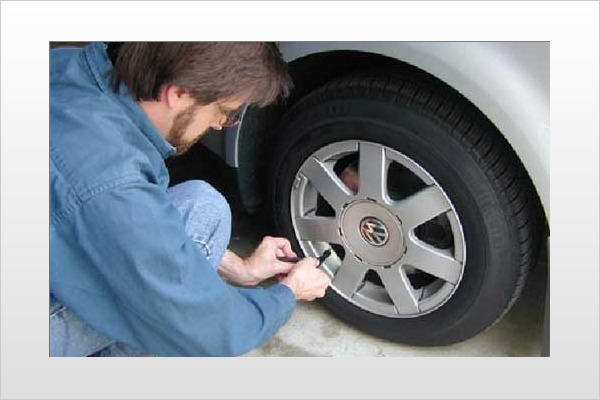
Today's cars are pretty simple. Put gas in them, change the oil and you're pretty much set. After all, modern cars have become almost maintenance-free because consumers don't want to spend time keeping their car in working order.
But along with this trend of low-maintenance appliancelike cars, owners have more and more begun to overlook the little things that make a car run efficiently. And when you don't do regularly scheduled maintenance — like keep your tires inflated or check your belts on a regular basis — your car is wasting small, but significant amounts of gas with every mile.
Fortunately, for those looking to take a chunk out of their fuel costs, this is the easiest place to find a few more miles per gallon. And it takes only a few seconds at the gas station and a little record keeping to optimize your car's performance.
1. Get Your Engine Tuned An improperly tuned engine hurts gas mileage by an average of 4.1 percent, according to U.S. government studies. Most important to mileage is a properly working oxygen sensor, which can increase or decrease your efficiency by as much as 40 percent. If you're procrastinating about having your oxygen sensor fixed, just imagine the money you'll save on gas with a boost in fuel economy.
2. Keep Tires Properly Inflated Underinflated tires damage your mileage by increasing resistance and making it more difficult for the engine to move the car along the road. Simply check them every time you fill the tank with an electronic gauge available at any auto parts store for about $10. Check your owner's manual or tire manufacturer's Web site for optimal "pounds per square inch" or PSI ratings. Often, tire pressure ratings are posted on a sicker in the door jam of the driver door. The U.S. Department of Energy says for every 1 PSI you are under the optimal rate, you lose 0.4 percent of your miles per gallon. It estimates the average person can improve mileage by 3.3 percent by inflating their tires regularly. See How To Check Tire Pressure and Inflate Tires.
3. Check Your Air Filter and Replace Every 12,000 Miles Most drivers think that cars run on just gasoline. Actually, cars run on gas and oxygen, hence the performance increase when a turbocharger blows more air in the intake manifold. If this flow is restricted by a clogged air filter, your performance and your fuel economy suffer. The Energy Department estimates you could save as much as 22 cents per gallon by replacing a bad air filter. For information about changing the filter yourself, please see "Change Your Car's Filters."
4. Use the Right Motor Oil Many people think it's OK to simply dump any motor oil they find into their engine. While the motor will continue to work with a different grade of oil, it won't work quite as efficiently. You can save a couple cents per gallon by using the exact oil recommended for your car in your owner's manual.
5. Don't Carry Junk in Your Trunk This requires no mechanical training at all. Simply get all those newspapers, cans and other baggage out of your car and trunk. Reducing the weight of the car increases mileage over the course of a tank of gas. This costs you nothing to fix and maybe you'll find some missing treasure hiding in there.